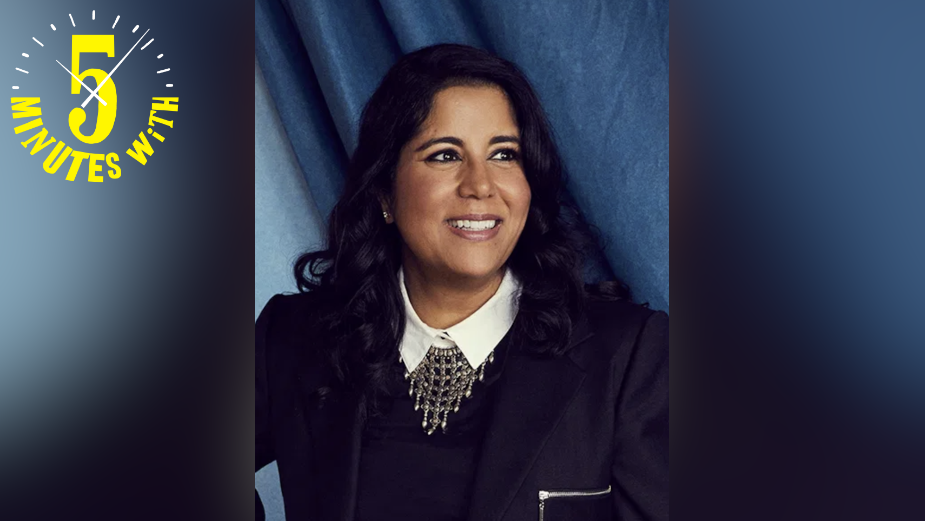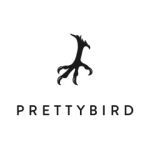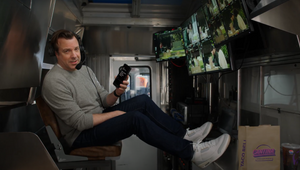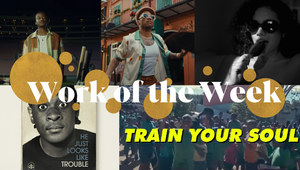
5 Minutes with… Nisha Ganatra

Photo credit: Sami Drasin
During college, Nisha Ganatra found herself regularly sneaking into film classes in her free time. But it wasn't until some dear friends encouraged her to go get an internship and eventually enrol in NYU Film School that she really knew of a career in filmmaking to be a feasible opportunity.
Nisha's filmmaking heritage is largely in feature films and television. She directed the Sundance hit film 'Late Night' starring Emma Thompson and Mindy Kaling. Late Night sold in a record-breaking deal and garnered the highest streaming numbers of the year for Amazon. She followed Late Night with the Working Title and Focus Features film, 'The High Note', starring Tracee Ellis Ross and Dakota Johnson. Nisha’s acclaimed debut feature, 'Chutney Popcorn', with Jill Hennessy and Sakina Jaffrey, won Audience Awards at the Berlin International Film Festival, Newport Film Festival, Outfest Los Angeles and many more.
But in 2020, Nisha stormed into the advertising industry by directing one of the most powerful and successful campaigns of recent years. Bodyform/Libresse's 'Womb Stories' campaign not only marked a first step into advertising for Nisha but also into a number of different filmmaking mediums and formats. The campaign absolutely cleaned up on the award circuit, picking up a coveted Immortal Award and the Cannes Lions Film Craft Grand Prix. That same year, Nisha was ranked the number one director globally by Cannes Lions.
The jury president – and subsequent award presenter – of the Film Craft jury was Kerstin Emhoff, the founder of PRETTYBIRD. Due to Covid constraints, the award sadly had to be handed out via Zoom but Kerstin and Nisha marked the achievement – and met for the first time – over dinner. Since then, Nisha has joined the roster at PRETTYBIRD with the aim of making more waves in the advertising industry.
LBB's Addison Capper chatted with her to find out more.
LBB> Tell me about moving to PRETTYBIRD - what made you want to join the roster there? How did it come about?
Nisha> Everyone knows that PRETTYBIRD is one of the top companies in the industry. I was admiring the work of Melina and all of the other directors with PRETTYBIRD and was so impressed. When Womb Stories was nominated for all of the awards at Cannes, Kerstin [Emhoff] was the Film Craft jury president. This being my first Cannes, I didn't know what any of those things meant – but it also meant that she was the one giving out the actual award. It was such a downer that it all happened over Zoom because of Covid, but I reached out and said, “Hey, I'm actually in LA if there's a way to do this in person.” Unfortunately, because of Covid rules, we couldn’t, but she explained to me what a huge honour the award was and offered to celebrate with a beautiful dinner.
When Cannes called and said we’d won the Grand Prix, I asked them who won the top prize so I could understand the company I was in – and they had to explain that I had. I was shocked. They said, “Yes, Miss Ganatra, The Grand Prix is the top prize.” We laughed together. I mean, it is a career-defining moment. And so sweet that it was so intimate and they were so kind to me. Then calls started coming in and flowers were arriving… And it started to hit me, what all of this means.
LBB> How did your dinner with Kerstin go?
Nisha> When we had dinner, Kerstin was talking about why she does what she does, and why PRETTYBIRD does what it does. A lot of companies are jumping on the diversity wagon now, frankly because they have to, but at PRETTYBIRD they did it from the start. The company was founded by an incredibly experienced woman and an insanely talented artist who is a Black man, and the word diversity didn't feel new to them, it didn't feel like they were checking a box, it felt like this was a mission statement from the beginning. Their genuine commitment to voices that aren't normally heard in advertising was hugely appealing to me. I never really thought about a career in advertising – mostly because it was a door that wasn’t open to me. You don't realise how you self-edit yourself until you actually do the thing and realise you had kept yourself out of the field as much as the field kept you out of it too. Advertising shapes culture so profoundly, it's so pervasive. When I saw what Libresse did and how they actually changed the law to allow period blood on television, that’s the highest achievement - to actually shift culture and have a positive effect.
With PRETTYBIRD, I thought, maybe I can have access to do some more incredible work.
LBB> Obviously, you have a huge catalogue in film and TV, but was doing Womb Stories what made you think that you’d like to do more commercials?
Nisha> Absolutely, and also watching these really cool Apple ads or Super Bowl ads where you really stop and acknowledge that they’re incredible pieces of film. Womb Stories was such a labour of love for everybody, and I was able to work in so many different mediums. AMV BBDO just trusted me - we were true, creative collaborators. I remember the day we wrapped, I burst into tears overwhelmed with all this project meant to me. We were all having beers on the street in Barcelona and I was crying, thanking them for letting me do it. It was a big risk. It would have been easy for them to say, she’s never done a commercial so we can’t hire her. No one else had been confident and brave enough to take a chance on me. But AMV BBDO knew my storytelling, and believed that if I could tell a story, then I could tell this story. Now I realise that they are very unique and incredibly confident in their work so they could allow someone like me in… it's very impressive and inspiring.
LBB> What are your aims at PRETTYBIRD? What kind of conversations are you excited to be having with agencies and brands?
Nisha> It's that next level beyond advertising and into cultural commentary - that's the thing that PRETTYBIRD brings. I have a list of people who I'd love to do commercials with, the kind that affected me when I was young, like the Nike ‘Just Do It’ campaign, the ‘Like a Girl’ campaign that Lauren [Greenfield] broke boundaries with, the Beats film that Melina made which is so beautiful and moving. Everyone I brought up to PRETTYBIRD as people I would like to work with – most of it was, “Yeah, we know those people. Yes, we did that ad…” Well, cool! Let's get in there and start playing on a bigger screen with these genres that I think women are typically kept out of. I'd love to do a car commercial, I'd love to do some action-oriented films, comedy, sports – typically the things they don't think of women for which would be really fun to just keep breaking boundaries with. We never pick the easy route. That's what PRETTYBIRD is about, they're not about going down the easy path and getting you what everyone is offering. They’re trying to break into new fields here and make singular pieces.
LBB> With Womb Stories, how did you find the process of working with an agency and a client versus shooting a film or TV show?
Nisha> This was such an interesting hybrid between the two. It was unique in the sense that the ideas Nick [Hulley] and Nadja [Lossgott] brought were so strong and everybody at AMV BBDO brought their hearts and personal stories. There was such a long research period before, they were so knowledgeable about anything I wanted to do or add or change. And then we had this incredible client who just said yes to everything. For example, I went back and looked at the boards and the couple having the baby was not a lesbian couple - I didn't remember that, I think in my mind I just always thought they were a lesbian couple. Obviously, it’s because I’m gay and have a child, so I just cast two women and now I look back and nobody batted an eye. Nobody stopped me or questioned me changing it to a same sex couple. How bold is Libresse for that? Very.
The other thing that I saw and failed to communicate beforehand was the water birth scene - I just thought that was going to be more cinematic and something we haven't seen. That was the only thing where the client was concerned and said, “We just want to make sure it's safe and it looks safe.” And that's a pretty big change when you think about how someone's portraying themselves as a women's health advocate - to have the at-home water birth, instead of a more typical birth was a shift. But again, the client just said, “Sure, as long as we make sure it looks safe and we're not putting any women at risk.” And who can’t get behind that. The client and the agency always had the best concerns and the most open minds to all things creative. It was a dream.
LBB> A lot of your work as a filmmaker is comedic - is that something you're keen to explore in the commercial world as well?
Nisha> Absolutely – the best way to deal with really serious topics is with comedy. It's just an easier way for people to open their hearts to a new message. Making people laugh is the most disarming thing and then you can kind of sneak in your message.
I think of my time at NYU Film School where everybody was making these very serious auteur films. The people who were doing comedy were getting a bit slammed until we had this one professor who said, “Comedy is really hard. And if you can do it, do it.” We were sitting there feeling like the bastard children that were doing this unimportant work and he showed us the movie ‘Sullivan’s Travels’. It made me think – not to be self-important – that comedians are the ones who are always pushing culture in the direction we need to go. Even when we had this horrible Trump presidency here, the people that dared to speak up against him were Seth Meyers, Stephen Colbert, Trevor Noah and Samantha Bee, who was relentless with her takedown of Trump. Everybody who dared speak out against the scary autocracy we had going on here were comedians! And my respect and admiration grew even more. When you do it well, comedy is incredibly political, satire is incredibly important to make sure things are staying in perspective and people are hearing an alternative point of view.
It is the disrespected child of the industry – no one gets Oscars for their great comedy. But it is one of the most important genres in my mind, because what are we doing if we're not enjoying this entertainment as well?
LBB> Womb Stories dealt with an important and not particularly upbeat topic - but there are also a lot of funny elements in that film. How do you deal with tonal shifts like that?
Nisha> There’s that saying: ‘comedy is tragedy plus time’. It's something I've wrestled with from the beginning. I remember my very first film in film school, a classmate of mine said, “This is a tragedy. This isn't a comedy.” My film didn’t really fit into a genre, it was like a tragic comedy. I thought that might be the only way to tell these stories. If you're going to take on something serious, like infertility or Womb Stories or even queer/coming out stories, it's got to have some sort of levity to it. Like life, right? Sometimes the most horrible moments have the most absurd comedy happening at the same time.
LBB> You mentioned film school a bit, but how did you become a filmmaker?
Nisha> That was it. There was no relative, sadly, that could say, “Come do this,” there was no one I knew in the industry. It was just something I was circling around and then I started doing internships and PA-ing on sets and I was looking around at how you could work your way up to being a producer or other roles. But I thought, “Where's the director coming from?” It felt like they were always coming in from some secret location and then I figured out that secret location was film school. I went to NYU Film School because it was the number one school in the country at the time and I thought I better just go there and see how it goes. Without going to that film school, I wouldn't have a career. I wouldn’t have my amazing colleagues and I would not be the filmmaker I am today. It changed my whole life.
I was in college and was thinking about what I was going to do and my roommates noted how I kept sneaking into film classes in my free time, but I didn’t know it was a career. There was this amazing Italian cinema teacher at UCLA and she was so passionate about it and taught us everything about Italian cinema. They have a media library on campus that's second only to the National Congress library, so you can watch anything that was ever made on campus. In between classes, I would be there, but my dear friends Devah Pager and Anne Escaron really encouraged me to go get an internship and that kind of opened the door.
LBB> You worked on the Sex and the City reboot, right? What was that experience like?
Nisha> It was on when we were in college and we used to get together around whoever could afford HBO’s place, and dance around and watch it. So it's interesting when it came around as something I could do. It's such a culturally iconic show and it was fun to be a part of that! It was really interesting to go visit the set and see the opulence and the insanity involved with their production - there are no expenses spared and no corners cut. It was just the opposite of any of my New York filming experiences - Mr. Robot was quite indie, for example. For my indie films we’re always like, “Can we borrow this restaurant?” With this it was more like just buying out a whole restaurant. That was just fun to flex those big-budget muscles, it’s just a crazy, different experience. The cast is just lovely too, everyone was so thrilled to be back doing it. It was a really fun time.
LBB> When you're not shooting, what do you do to stay relaxed and happy?
Nisha> I think shooting is my relaxed and happy place. Somebody asked me if it was hard to direct, as opposed to raising a three-year-old and I was like, “No!”, because when I'm on set there are literally hundreds of people trying to help me accomplish my goal. Whereas with my three-year-old there’s just a really strong-willed person going the opposite way of what I am asking and trying to accomplish. Directing is much easier, it’s definitely my relaxed place. Motherhood is much harder! But both are my happy.













